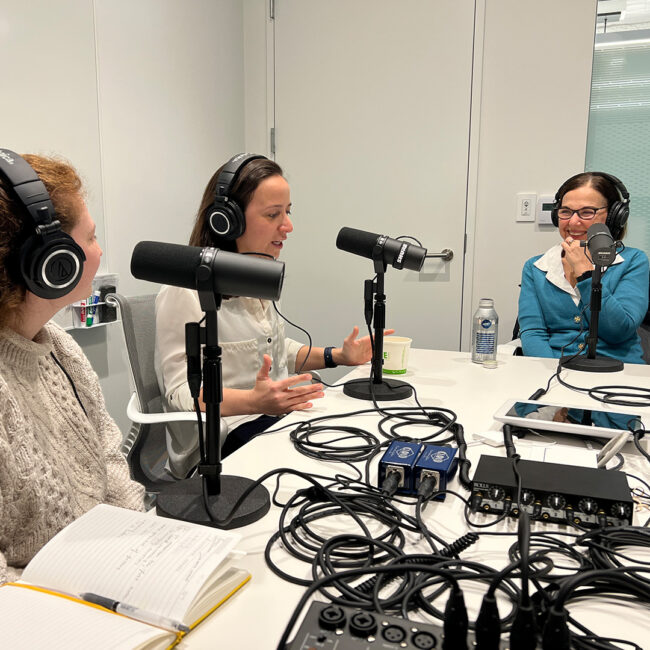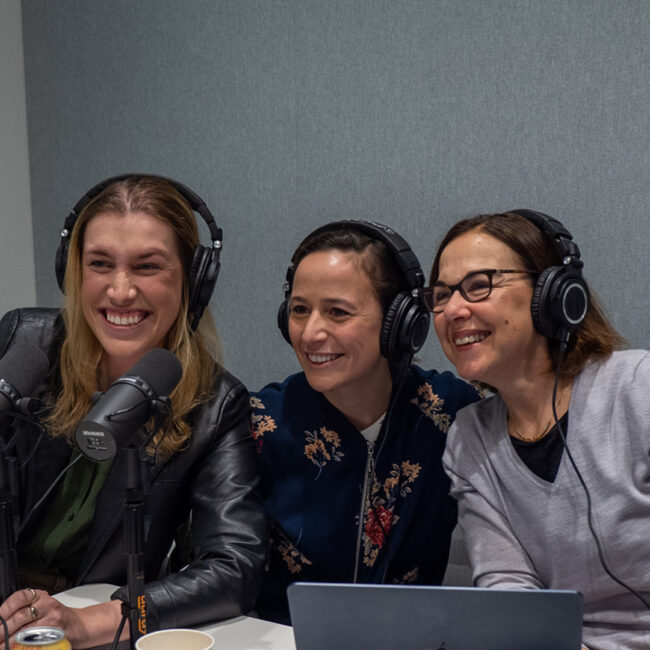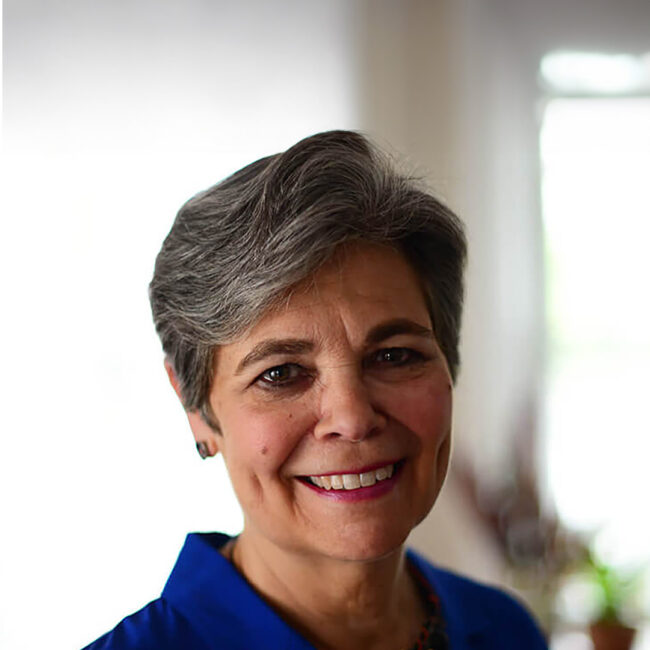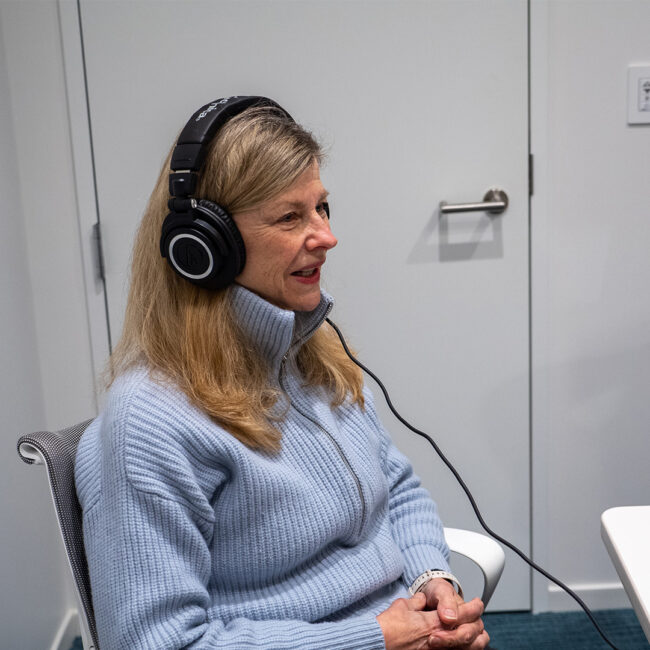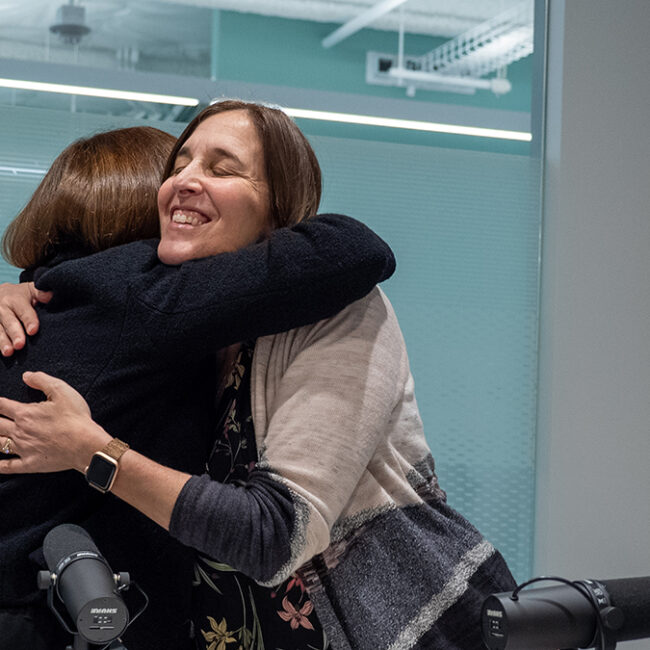
Listen on:
Episode Transcript:
Natasha Steele:
Hey everyone, and welcome to Health After Cancer. Today, I'm your host, Natasha Steele, and in the studio with me, are Elle Billman...
Elle Billman:
Hey everyone.
Natasha Steele:
... and Lidia Schapira.
Lidia Schapira:
Hi.
Natasha Steele:
We could not be more excited to have Nicole Barr join us today, as our guest. She's a real expert in the mental health needs of cancer survivors. And in order to build this expertise, she worked for years. She has a nearly 20-year career as a nurse practitioner, particularly in the lymphoma clinic, where she cared, every day, for people who were receiving active treatment for their cancer. And Nicole, as you've always told me this story, I think, you really started to notice, gosh, there is so much going on, and there's so many unmet needs, from a mental health perspective, that you were identifying in your patients.
And this led you to have this passion for caring for not only the physical, but also the mental health of the people that you were meeting in oncology clinic. And so as a nurse practitioner, you went back, and you got an LMFT degree, which is a licensed marriage family therapist degree. And now, your field is, really, psycho-oncology, which... If I could summarize, and I'm sure you'll do this so much better than me, but it's, really, the mental health needs of people with lived experiences with cancer. Huge thank you for being here today. We are so excited to learn your perspective.
Nicole Barr:
Thank you. Thank you. I'm happy to be here.
Lidia Schapira:
Nicole, I'm going to jump in and just ask that first question. I'm so impressed by the fact that you have been a nurse practitioner, working with cancer patients, for years, and then took the training to become a therapist, and now see cancer patients and cancer survivors, and caregivers, from the mental health side. Tell us a little bit about that journey.
Nicole Barr:
I was, even when I became a nurse practitioner, probably more psychologically minded. And I had done training with the Zen Hospice Project in San Francisco, on contemplative practice with people with terminal illness. And that was, actually, how I came into being a nurse and a nurse practitioner. My entire journey, as a nurse and a nurse practitioner, had that backdrop of understanding how we relate to suffering and existential issues. And it was, really, my confrontation with the world of oncology that took me off guard. Because it is, on some level, and understandably, for people who are coping with the disease, and caregivers, all about trying to stay alive, and this metaphor of fighting. And sometimes, the piece about, how do we just cope?
How do we just live with "What is?" Which is the cancer experience, whether it's in survivorship or early diagnosis. How do we cope with that? That piece always followed me around as I worked with patients in a number of different oncologic specialties, but particularly in lymphoma, working with patients that I got to know over many, many years. Because, delightfully, many people survive different kinds of lymphoma. Understanding the difference between people who continued to suffer and people who had more emotional and psychological freedom and relief, and understanding that over years, and realizing that was, really, the area of care that I, probably, had the most to offer, in addressing, and that I liked the most.
Natasha Steele:
Nicole, can you talk a little bit about your experience working with survivors across the age and life spectrum, and how this evolves? You meet someone, maybe they've just received a diagnosis, or maybe they've exited active treatment, and you're following them over time. Are there any particular trends or themes, that you think, emerge when you're caring for someone longitudinally?
Nicole Barr:
Yeah, for sure. I think that's one of the things that also made me want to do more work on mental health and coping. Because when you work with a large number of cancer patients over a long period of time, you realize there are stages. And some of what I do, sometimes, is just to normalize how people feel in a particular stage of coping. And in fact, one of my mentors in this... I referred a patient when I was in lymphoma clinic, and she was misdiagnosed as having a much more severe psychiatric disorder out in the community. But one of my mentors saw her and said, "This is totally normal. She's just been diagnosed with a very scary-seeming cancer." Though she did well and survives to this day, and has a very full and wonderful life. She, at that time, had one young child. And she was so emotional that those emotions were misread by a community mental health provider, as a much more serious mental health diagnosis than she actually had.
And it took somebody who had seen cancer patients, many cancer patients, over many years, to understand, this is totally normal. We all can go a little crazy at times of incredible loss, and trauma, and upset. And I will say, I shared with some of you before this meeting, I recently went through something where my husband had a terrible medical event. And I was watching myself as I was going through it. And I thought, I'm the crazy patient now. I'm the crazy patient wife. I went into shock during part of it, and had, almost, a shocky reaction, where I almost needed to throw up in the emergency room of Kaiser Redwood City, right near here. And I knew this was not a very sophisticated way to be responding to this issue, but my nervous system just took over. I thought my husband was dead, and I thought I needed to throw up. I didn't, fortunately, not on him, not around him. He finds this quite funny though, in retrospect.
Lidia Schapira:
Yeah. It's so interesting for me to hear you talk about the spectrum of emotions, because in my practice, I've seen that people feel things. Some of them really display them, and you can see them, others, perhaps, are feeling, but are not really conveying them. And then, I've seen some who really get some of these psychiatric diagnoses attached, because they show a lot of emotion. Can you talk a little bit about how we should think about it, for those of us who are clinicians, and those who are actually going through this, about things like anxiety and PTSD, and depression, and grief, when somebody really is struggling with a disease like cancer?
Nicole Barr:
I think that's a great question. And there's so much I could say about it. I think that's absolutely what happens, is people experience strong emotions and strong emotional experiences. Some people express them, some people don't express them, some people express them through their body, like I was describing, like feeling like you have to be sick, or having terrible headaches. Things go into the body in a certain way. All of these things can present as something that could be misdiagnosed and over-pathologized as mental illness, but might be completely normal for that person's coping, particularly if they have prior experiences of stress or distress, or trauma, and have learned those ways of coping.
People get sent to me a lot, because they are angry. And almost without exception, when I hear their stories, they have pretty good reasons to be angry, and understandable reasons to be angry. But they're anger doesn't have a place in the clinical setting. And they maybe don't have the skills to acknowledge and express their anger in a way that is socially appropriate, or focused at the right issues. Who among us can do that? Not me, all the time. It's hard. And people, sometimes, are angry or grief-stricken, or in shock at some of the things that, to those of us on the nurse practitioner, or physician side, are normal conversations.
Lidia Schapira:
Nicole, the one thing that I also would love to ask you about is this. As a physician, as an oncologist, I sometimes see that people are reluctant to accept my recommendation to see somebody who's trained in mental health because of a stigma associated with having a mental health diagnosis. Do you have any tips for me? Are there things that I can say to somebody that, perhaps, will lead them to the help that I think that they could use?
Nicole Barr:
I think that's the art of persuasion, as a doctor, is figuring out what would this patient... Will convince them. And so sometimes, I'll ask patients, "What about this worries you?" Because people still have that fear of stigma when they see me. And often, they'll see me, because I'm the nurse practitioner and therapist on the team, as opposed to the psychiatrist. And sometimes, I will say, "What were your worries? Have you ever talked to somebody like me?" One of the reasons I love my work at Stanford... I also love my private practice work, but my work at Stanford enables me to see people who would never come to see a therapist ordinarily. And it's interesting to find out, for that person, what was the stigma?
There are a lot of our patients who have very strong cultural stigma, who come from cultures or countries where mental health diagnoses, literally, can mean that they're imprisoned, or restricted in different ways. There are people who have... It's a very common scenario, is somebody who has a more severely mentally ill family member. They associate psychiatric medications and diagnosis, and providers with that person. And their identity is built around being the caregiver, or the person who's not mentally ill. Sometimes, it takes a little exploration, if I said this, "Would you go? And why or why not?"
Lidia Schapira:
It's interesting to me, to hear you say that. I grew up in Argentina. And my father was Austrian. For me, everybody has a psychologist from the time that they're in their teens.
Nicole Barr:
Yes.
Lidia Schapira:
And even when I go down there now, they may not have all the resources to treat cancer, but boy, every cancer patient gets referred to a psychologist.
Nicole Barr:
Yes.
Lidia Schapira:
So, again, I totally see the cultural aspect here, where... For some of us, getting mental health when we're facing a difficult physical diagnosis is something that we would absolutely do, just as we would see an orthopedist if we fracture a leg.
Nicole Barr:
Culture can work in favor of or against the stigma of mental health for sure.
Natasha Steele:
Yeah. And there's definitely the cultural components. But then, I also think there's something unique about the experience of cancer, and the intersection of that with mental health. I had a friend with very severe metastatic disease, who was upset and angry, and probably bordering on depression, in the context of her illness. And it was suggested, at some point, with her clinical team, her oncology team, that she should seek mental health help, which made her even angrier. Because her feeling was, "Gosh, how could I not be all of those things, about my reality? How could I not be angry? How could I not be depressed?" I do think that cancer has this interesting overlay when it comes to mental health around what's normal, in terms of a reaction, from a mental health perspective. And just curious, how do you approach that when you're working with someone who has every right to have a normal reaction of anger or sadness? Do you help them cope?
Nicole Barr:
I think you have to start with validation, really validating, this is totally normal. Of course, you're furious. Of course, you're grief-stricken. Of course, you're scared out of your wits about this. This is an existential threat. Even people who have cancers that aren't life-threatening at that time, just the word "Cancer," for many people across many cultures, just equates the sense of risk to life. And so it's terrifying for many people, no matter how much you tell them, "You have good cancer. You have an early stage cancer." Doesn't matter. And so I think, really, validating that before bringing up the referral and saying, "Look, it makes sense to have a lot of big emotions and a lot of difficult experiences," and it's still something we want to help people with.
As I was describing to you before, when I worked in lymphoma, we treated a lot of people with steroids. And steroids cause all kinds of side effects from, sometimes, mental health side effects, even psychosis, to high blood sugar. And if any of those side effects occurred, we treated them all the same. We said, "The treatment is causing this. And we still have to address it. Your blood sugars are high. You may not be a diabetic before this happened. But now, we've got high blood sugars over weeks, or months, we still have to treat you with the same tools we would treat a diabetic. That diagnosis doesn't have to follow you around the rest of your life, but right now, we need to help you with these particular experiences and symptoms."
Natasha Steele:
Yeah. It sounds like validating and holding space is something you found really effective in your work, caring for these patients. Another question I have is a similar topic. For people who go into remission, and who have this feeling of happiness that their cancer is "Cured," and grief that this happened at all, how do you help people hold space for two things at once? What does that look like in your practice?
Nicole Barr:
I think people don't often have permission or experience to hold things that are bittersweet, that have two aspects. And sometimes, I will probably... Because I gesticulate a lot, which you can't say on a podcast, but I'll often give people the image of holding two different things in two hands. In one hand, you could hold that you have one kind of experience, like joy that you're done, and on the other hand, grief of all that you've lost in the course of this treatment, the side effects, your hair, the innocence and confidence that you're going to live to old age, if that's the case, the feeling that that might be the case, even if your doctors are telling you it's not, and you're going to be fine. I think the ability to hold and validate contradictory, big emotional experiences is a big part of the work that I do.
Natasha Steele:
Yeah. And it's so different than oncology. Because I remember, distinctly, being told when I was diagnosed, "You should be so happy about this type of cancer you have." And I'm nodding in my head, like, "Okay, I'm feeling happy, I'm feeling..." But I just couldn't feel it. Because at the end of the day, I was being diagnosed with cancer. And, of all of the cancers, yes, it was good that I had Hodgkin's lymphoma. And so I think a lot of the work I've done, learning from you, has just been around, how do you hold space for two things at once? How do you do that?
Nicole Barr:
Yeah. And I think, that moment, I saw so many times, as a nurse practitioner, where the physician would come in and cheerlead, and say, "We're done with treatment. Yay. This is so great." And they'd leave the room. And I'd be left to write my note, or do the work of a nurse practitioner. And the patient would just cry. And then, I would sit with them, and basically, do impromptu and untrained therapy, which is why I became a therapist. I figured I better get a little better at that moment, where people would say, "I don't feel joy." I can't tell you how many times people said that to me. "I don't feel happy. I'm supposed to be happy. My doctor tells me I should be happy." And who feels things when somebody tells them, you have to feel that way? It reminded me of summer camp, mandatory fun.
Natasha Steele:
Yeah.
Lidia Schapira:
Now that you are a therapist, can you tell us a little bit about specific therapies that work for cancer patients?
Nicole Barr:
Yeah. I mean think a lot about... I go to these conferences where everybody makes presentations. "This kind of therapy worked," or "This manualized intervention worked." And I'm always looking for common factors. What are the things that these therapies have in common? We all have to adopt something very specific, with a different alphabet soup of cognitive behavioral therapy... Mindfulness-based cognitive behavioral therapy, acceptance and commitment therapy. There are many that work. And I'd say those are the main ones, acceptance and commitment therapy, and cognitive therapy that has mindfulness elements. But there are apropos of what they do in South America, more psychodynamic approaches that can be very informative. I think that the common factors have to do with connecting with another person, and having rapport, and having somebody, as you said, Natasha, hold space and connect with you on an interpersonal level, and understand your human experience with what one of the founders of psychotherapy calls unconditional positive regard, with some care and compassion. And then, I think a lot of it does focus on acceptance, and then refocusing more on purpose and meaning than on, simply, being happy.
Lidia Schapira:
And what about the families? We talk a lot about cancer being something that happens to a family, but then we don't have a whole lot to offer to the parents of the kids with cancer, the kids whose parents have cancer, or the spouses or partners.
Nicole Barr:
Yeah.
Lidia Schapira:
We're doing a lot of caregiving. Do you have any advice for us?
Nicole Barr:
I personally don't love the word "Caregiver." Having just been a caregiver through a serious illness, sometimes I had days where I wanted to say, "I actually don't care today. I don't care." I will take care of, but I am burnt out and frustrated, and exhausted, and want to do my own thing. Because a lot of caregivers are thrown into this. A lot of family members and spouses, and girlfriends and boyfriends are thrown into this. They don't get asked, really. I think, just attending to those people, sometimes, like asking them how they're doing, and that's where I do think referrals are encouraging people to get mental health support, and have a person of their own, they can talk to, is very, very important, to acknowledge that... Even just acknowledging people in the room.
And it makes a big difference to introduce yourself. And a lot of people come on video visits, or do visits with me in person, with their person, whether it's their adult child or their partner. I think it's the reason a lot of men come to mental health support. If they're in a heterosexual relationship, or even in a gay relationship, often, it's a partner who says, "You're being a pill. I need you to get some help and support." And that's another thing that I like about my work at Stanford, is that I do see a much higher percentage of male-identified and... Men than I do in regular private practice, because women seek therapy more than men. We just know that to be true.
Natasha Steele:
I can only imagine how hard it is for, whether we call them, co-survivors or caregivers, because there's so much clinical attention spent on a person who's navigating a cancer experience. And then, I can imagine there's a lot of guilt for that other person, whether they identify as a co-survivor or caregiver, of needing any attention themselves. And so I wonder if a lot of what you do with that identity is validating as well, that this is also happening to them, that they also have needs, that it's okay for them to carve out their own time, and things like that.
Nicole Barr:
Interestingly, yes, I think that that is definitely the case. And usually, when you say those things to somebody, they will let down and cry a little bit, and say, "Yes, that's true." But I have a lot of people who are in that role, who are soldiering on at that moment. And they don't want to hear it. They're like, "I'm fine. I'm fine. Just pay..." You almost have to be with that resistance in the room, that they are like, "Look, I'm fine. I'll take care of myself later." I did a very brief study on caregiver sleep, and most people... They just didn't want any of the interventions, because they... Their meaning and purpose at that moment, to care for the person who is dealing with cancer, is so much greater than their need to take care of themselves.
And so you have to really get to know people, I think, over time, and build some trust with them, and just say, "I care about you. I see how this is impacting your health. We know, from data and follow-up studies, that caregiver health is impacted over the long term. And you can't care for others if you're not healthy yourself." But often, people aren't dealing with a ton of resources, or a ton of choices, a ton of good choices, at that moment. Sometimes, it's okay to just say to a caregiver, "It's okay if you want to give it your all. If that's what you need to do right now, to feel that you're doing a good job, then give it all you got."
Elle Billman:
Zooming out a little bit, as cancer survivors move into survivorship, and they of face all of the challenges that life has for them, can you provide any advice on how to tell whether you're just going through anxious moments, or dealing with short bouts of anxiety, versus whether or not you may actually have an anxiety disorder, and when that scale tips over, and you should see a mental health specialist, or try to seek more support?
Nicole Barr:
That's a great question. And I wish there was a really bright line. Sometimes, I can talk to people who seem to have a lot of symptoms of anxiety, but they're very well adapted to it, and they don't feel that they need any help at all. And sometimes, people have a much lower threshold for tolerating anxiety. I feel like the line is not so much where the anxiety becomes pathological, as much as how hard it is to carry, and whether it's getting in the way of doing something you want. If it's getting in the way of going for a follow-up test, because you have a lot of anxiety going to the women's cancer center, going to the MRI machine, then it's...
Needs some attention, because you're not doing what you need to do to stay well, on some level. But sometimes, it can just be uncomfortable. Even somebody who can march through, and be a good soldier, and do all the things they need to do, they're suffering. And it would help to talk to somebody and have a richer toolkit of ways to manage those anxious feelings. I think the most important thing is, really, how to hold and manage the anxiety. It's inevitable. There's going to be some.
Elle Billman:
Got it.
Nicole Barr:
I don't know. Does that answer your question?
Elle Billman:
Yeah, that helps a lot. I was trying to get at how we all go through... It's normal to feel sad, it's normal to feeling anxious, but when does that become something that you should actually seek care for?
Nicole Barr:
I think another way to think about it is, are you alone with those feelings? Do you have anybody to talk to about those feelings? And what are you doing with them? Obviously, there's clinical criteria, like is it keeping you up at night? Is it getting in the way of other things you need to do? Is it impacting your daily life? Is it preventing you from fulfilling your role? But I think a lot of it has to do with how much suffering, and how alone you are with things.
Natasha Steele:
One of the things, I think, make you unique and phenomenal is, you have this rich experience within oncology and caring for this population. And then, you have this expertise in therapy, and some of the tools that come with that, in your clinical work. And I'm wondering, most people do not have access to a provider who's also oncology-trained, and really understands the unique needs of this population. Do you have advice for therapists that are looking for some resources to help understand this population? And this is a two-part question. Do you have resources or ideas for patients who don't have access to a oncology-trained survivorship therapist, but are working with someone they really like, and trying to communicate some of what they're experiencing?
Nicole Barr:
Yeah, that's a great question. I think, certainly, finding somebody who's trained in something like acceptance and commitment therapy, in grief therapy modalities, in a meaning-centered therapy, certain kinds of therapies. Most experienced therapists will have seen people who experienced health challenges or loss. People that are experienced in working with the aging, even if you yourself are not an aged person, sometimes a more experienced or older therapist will have... Or just even an older person who's become a therapist.
I have many colleagues who have come to me and said, "Oh, I'm really interested in this kind of work, because I've gone through this with a family member. I've gone through this myself." And so I think that it's very possible to find a good therapist, who's not somebody who can know a bizarre amount, as I may, about a particular area of oncology. People that are experienced at working with anxiety and fear, as long as they've worked with people who have anxiety and fear of real things, are also very good. I don't think you need to be somebody who has the medical background in oncology, and the therapy background, to be helpful, for sure.
Lidia Schapira:
So interesting, Nicole, to think that you started with this vocation for hospice type of work, and palliative medicine, where there's so much emphasis on presence, and being present, and bearing witness. And then, you dove into work in oncology, and now, is a therapist. My last question to you is, perhaps, also about the mental health of the clinicians who work in the cancer space, and work with cancer survivors. What have you noted?
Nicole Barr:
I have noted recently, that I could not do it without my colleagues. I did this work alone, when I started doing it, because we didn't have a psycho-oncology program. And I started this, actually, as a pilot project. Then the physician who was supervising me in this pilot project left. And I was working with only a remote attending, for a while. And I can say that, now that we have a team, a bigger team, it's so helpful, because it is work that... You are creating space and being present for things that are difficult. And especially during COVID, and especially working remotely, it really helps to have colleagues that you can discuss things with, talk about, even just talk about unrelated things, who know what you do, who understand what you do.
Natasha Steele:
Nicole, do you have advice for someone who may be on the fence, thinking about if they need help, or if they're willing to engage? What do you think would motivate someone to take that step?
Nicole Barr:
I think, often, what motivates people is looking at how... Your mood symptoms. And mood symptoms can include irritability, as well as... We've talked a little bit about symptoms of anxiety and depression, feeling down, feeling blue, feeling worried, but how these kinds of symptoms impact the people that we love, or the people we're in relationship to. Because even worry and anxiety... While people might feel it makes sense, and it's normal, anxiety can run us around. We can have the same thoughts over and over again, like a hamster wheel. And that can impact the people that we love, and we relate to, as well as ourselves. It certainly can impact parenting. I think that being a good parent, being a more accessible partner, all of these things are often good motivators for people.
And if people don't have people close to them, it can just be a sense of living, holding this all with a little bit more ease, and a little bit more joy in life, motivating people by thinking about, what are your goals? What kind of life do you really want? How do you want to... Nobody can change that this... Often, when I say to people, "What are your goals of being here?" They're like, "I wish I didn't have cancer." And I'm like, "God, I wish that too." But given that these are the cards that one was dealt, how do you want to go forward in life? So, thinking about goals, thinking about the impact on other people around you, and how you're going to live your life, and relate to others, those can be motivators.
Natasha Steele:
Yeah. Awesome. Thank you so much, Nicole.
Nicole Barr:
Sure. You're welcome.
Natasha Steele:
Again, I always learn from you, every time we get to interact. And I'm just really excited that our listeners will get to hear a lot of your thoughts. I think mental health is such a huge part of this experience. And as clinicians, we often don't have tools to give our patients, to be able to cope with this. I'm so happy you exist, and that people like you exist, because you're so darn good at your job, and just really grateful that you were here today.
Nicole Barr:
Thank you. Thank you. It's my pleasure.
Elle Billman:
If you enjoyed this episode, and you'd like to help support the podcast, please share it with others, post about it on social media, and leave a rating or review. Your host today was Lidia Schapira, Natasha Steele and Elle Billman. This podcast is produced by the Stanford Medicine EdTech team. Our producers for this episode were Lidia Schapira and Adelia Baumgartner. Our creative director is William Bottini. Our sound engineer is Bindu Madhava. This episode was edited by Shauna Pulley. Our guest today was Nicole Barr. For more resources and information from our hosts and guests, please visit our podcast website at www.healthaftercancer.com. Thank you for listening.
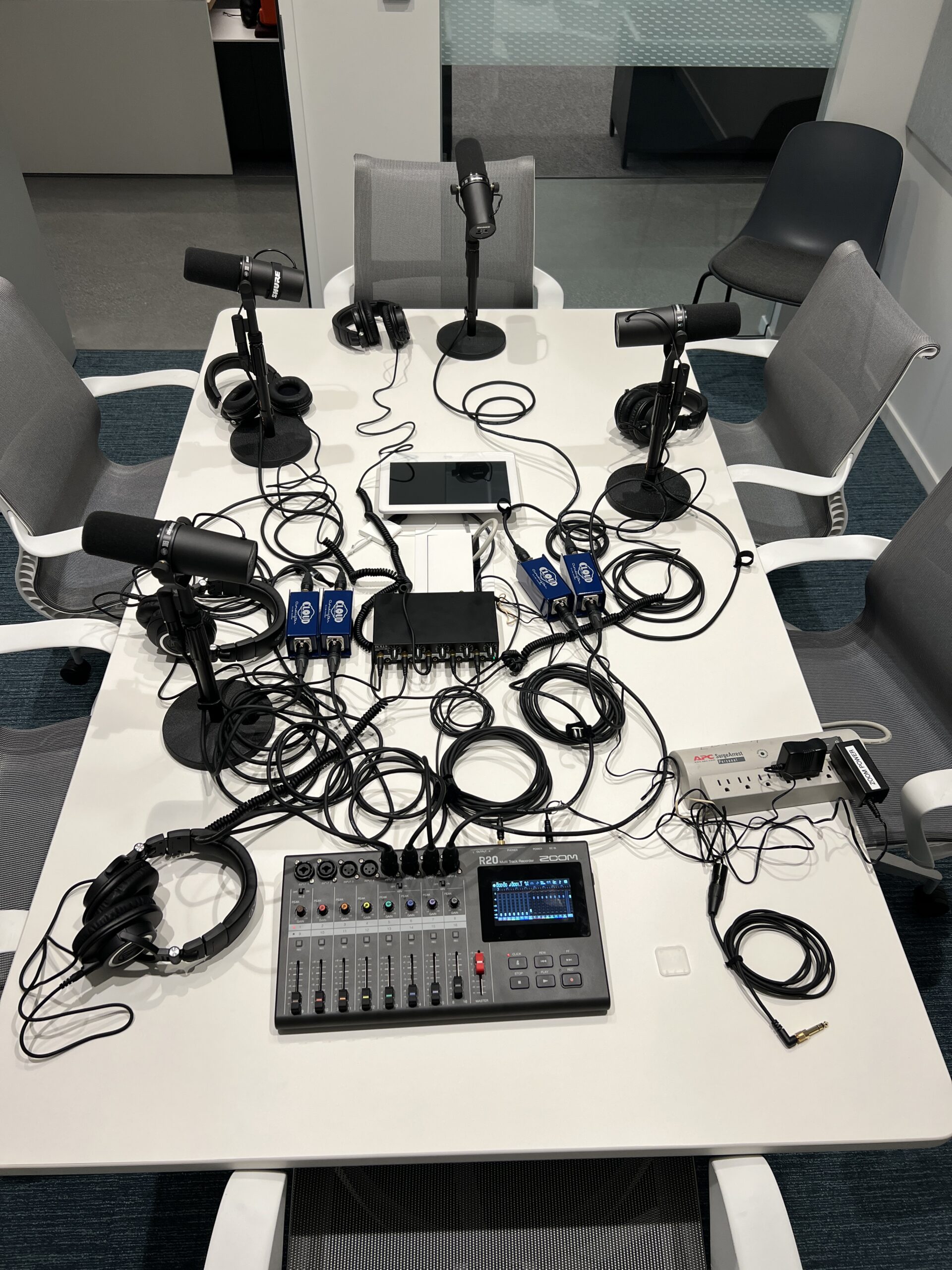
Meet your hosts:
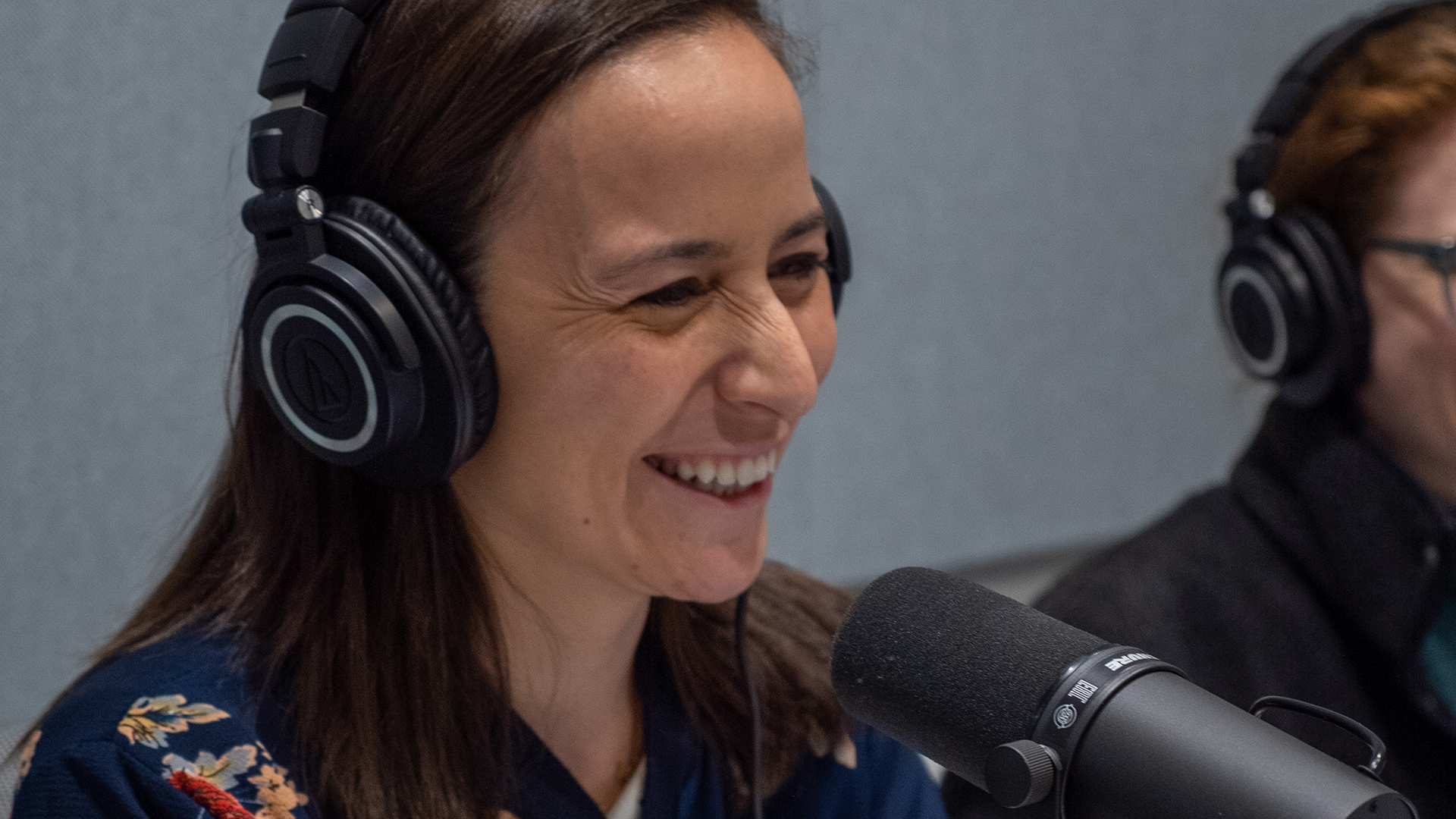
Natasha Steele
Natasha is a young adult cancer survivor, an internist and researcher, and an incoming faculty member at Stanford Medicine.
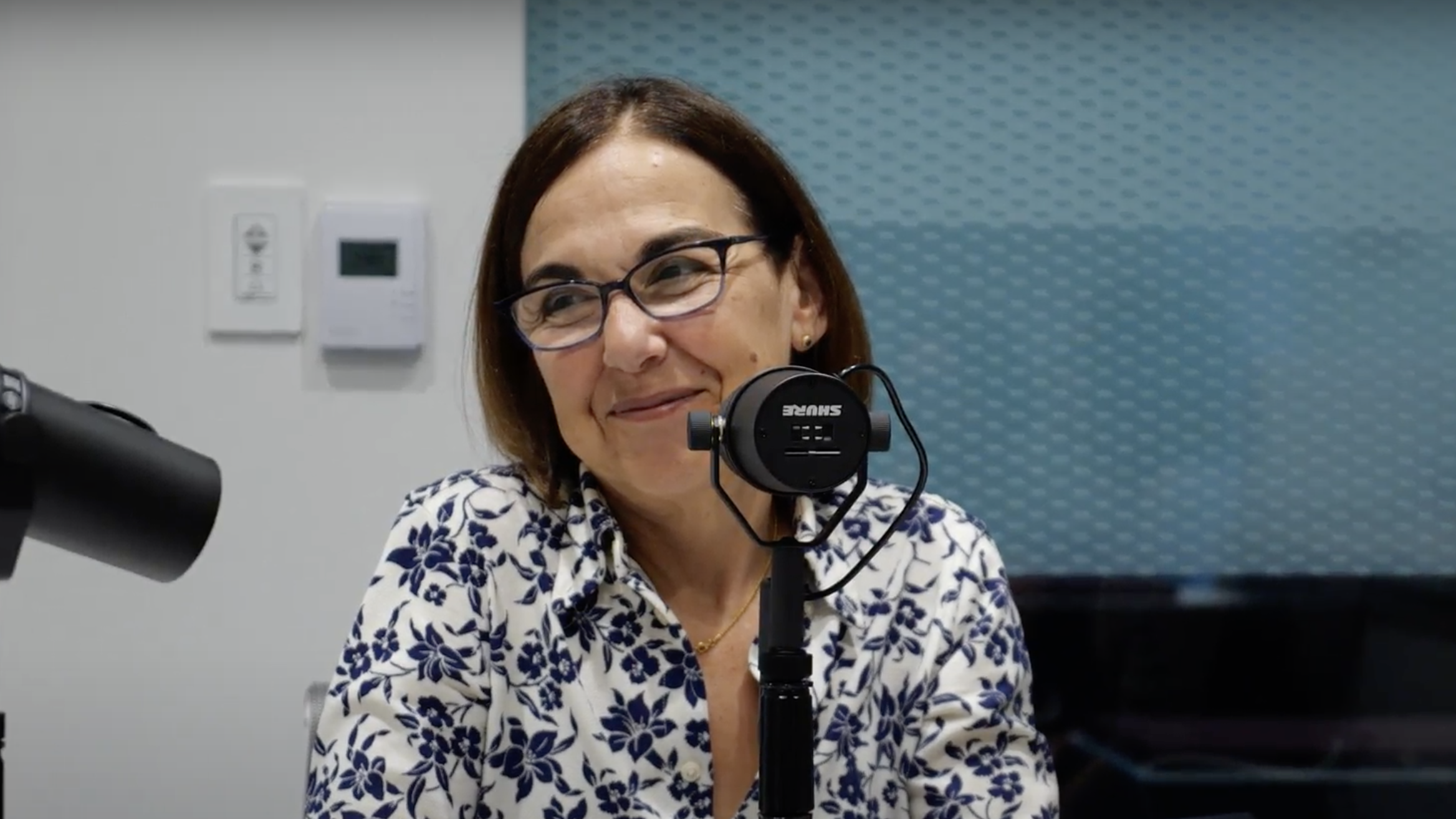
Lidia Schapira
Lidia is the director of the Stanford Cancer Survivorship Program and the executive producer of Health After Cancer.
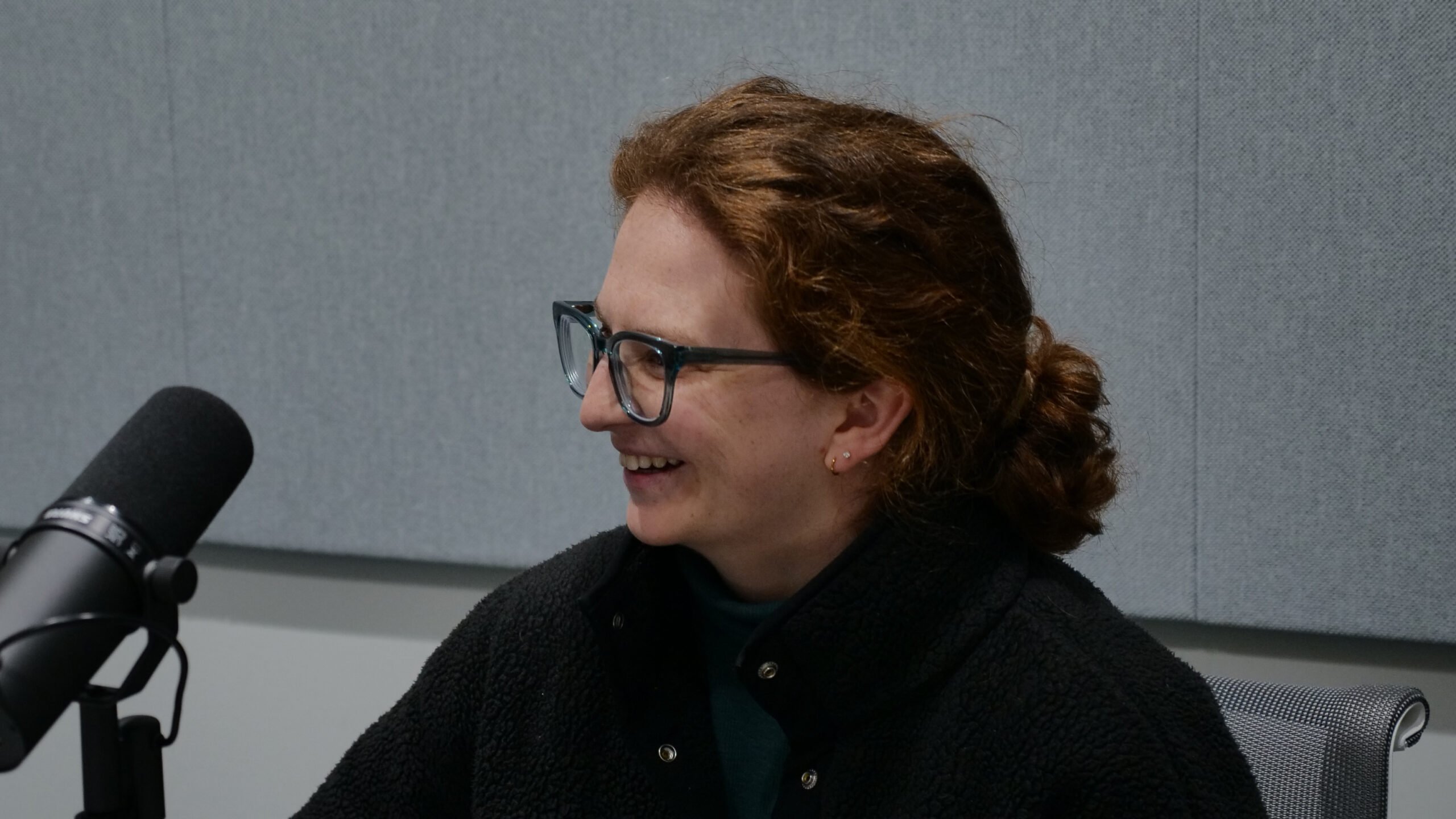
Elle Billman
Elle is a childhood cancer survivor and 2028 MD candidate at the Ichan Medical School, at Mt. Sinai, in New York.


